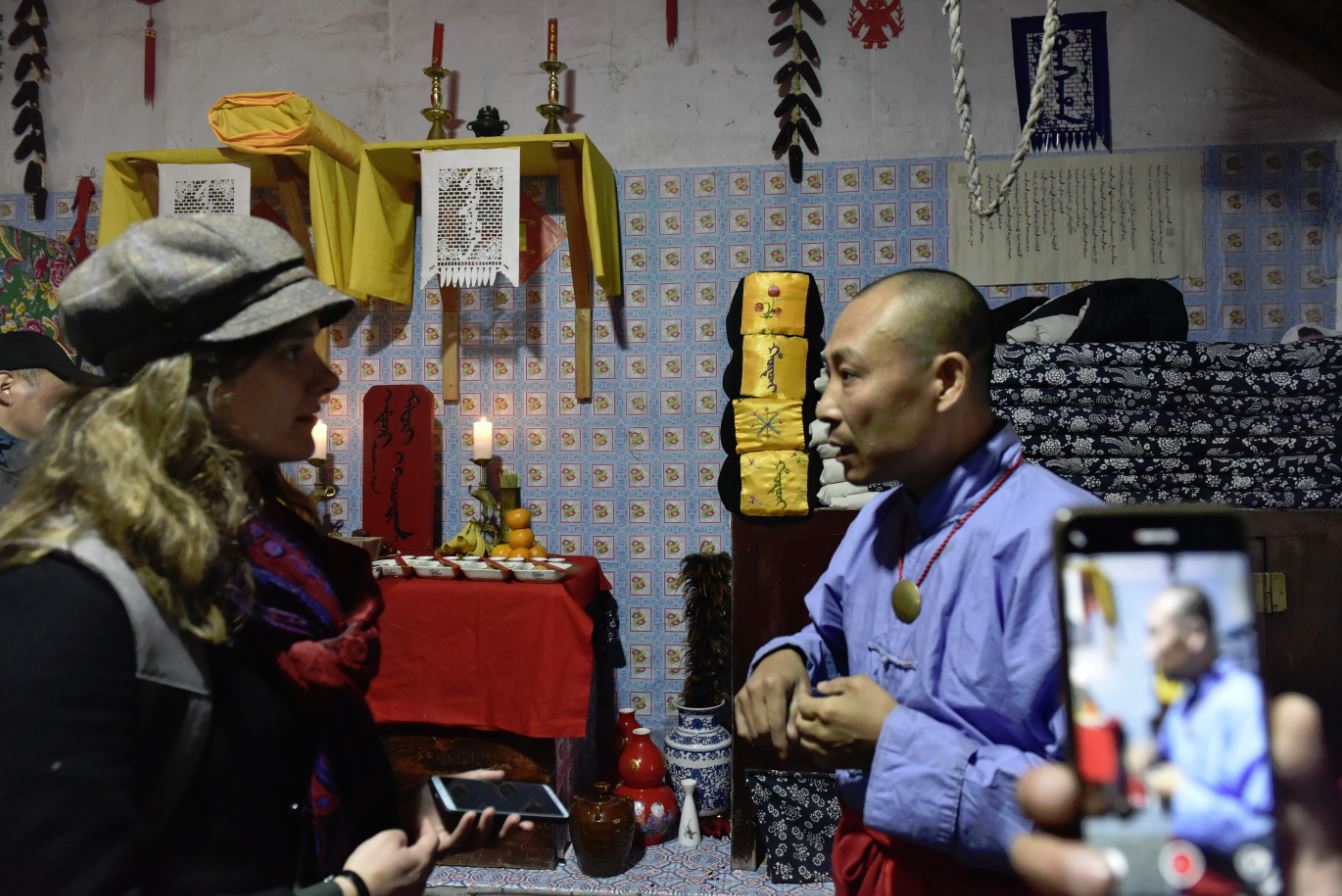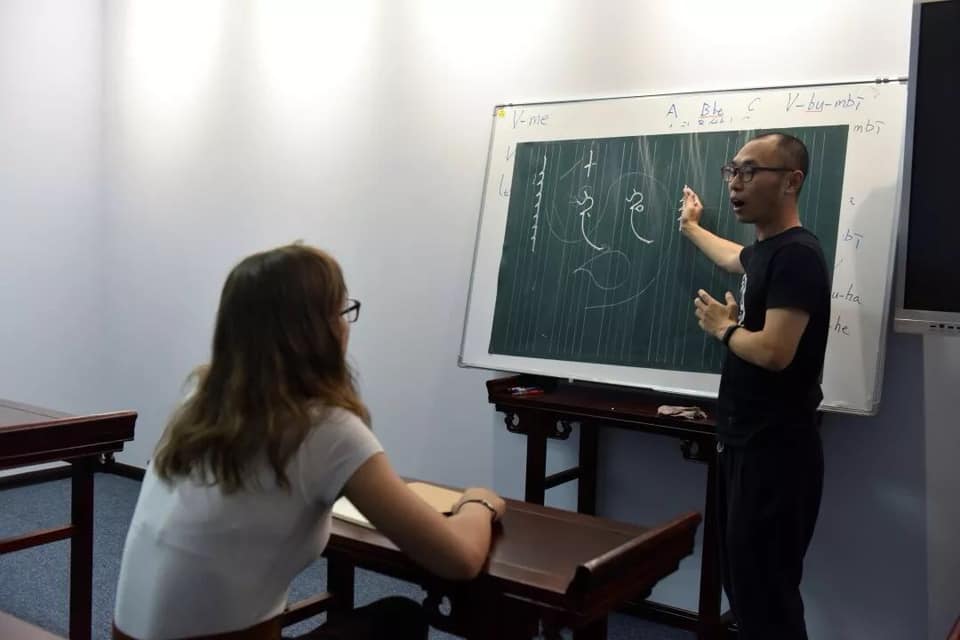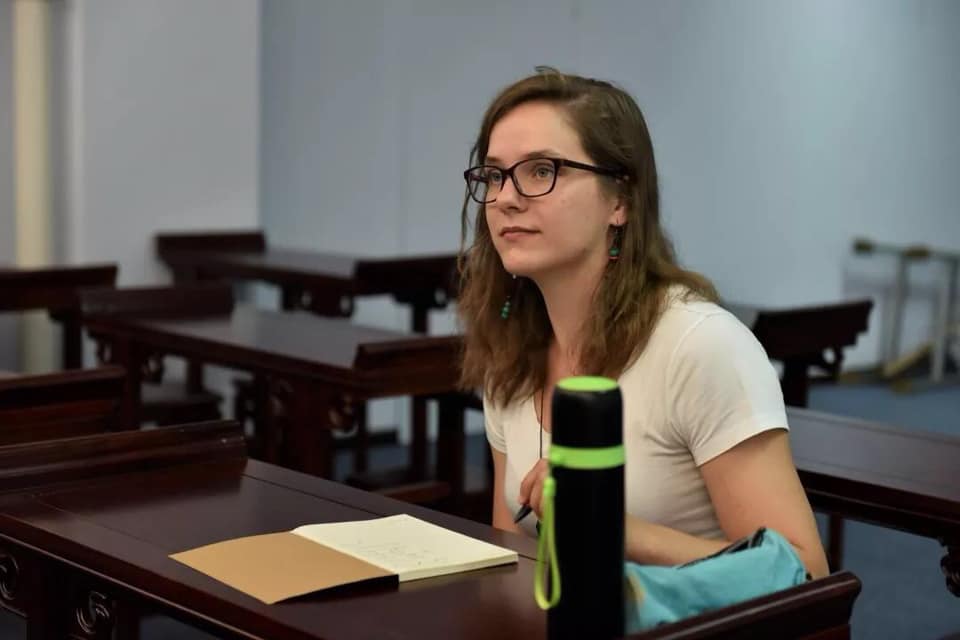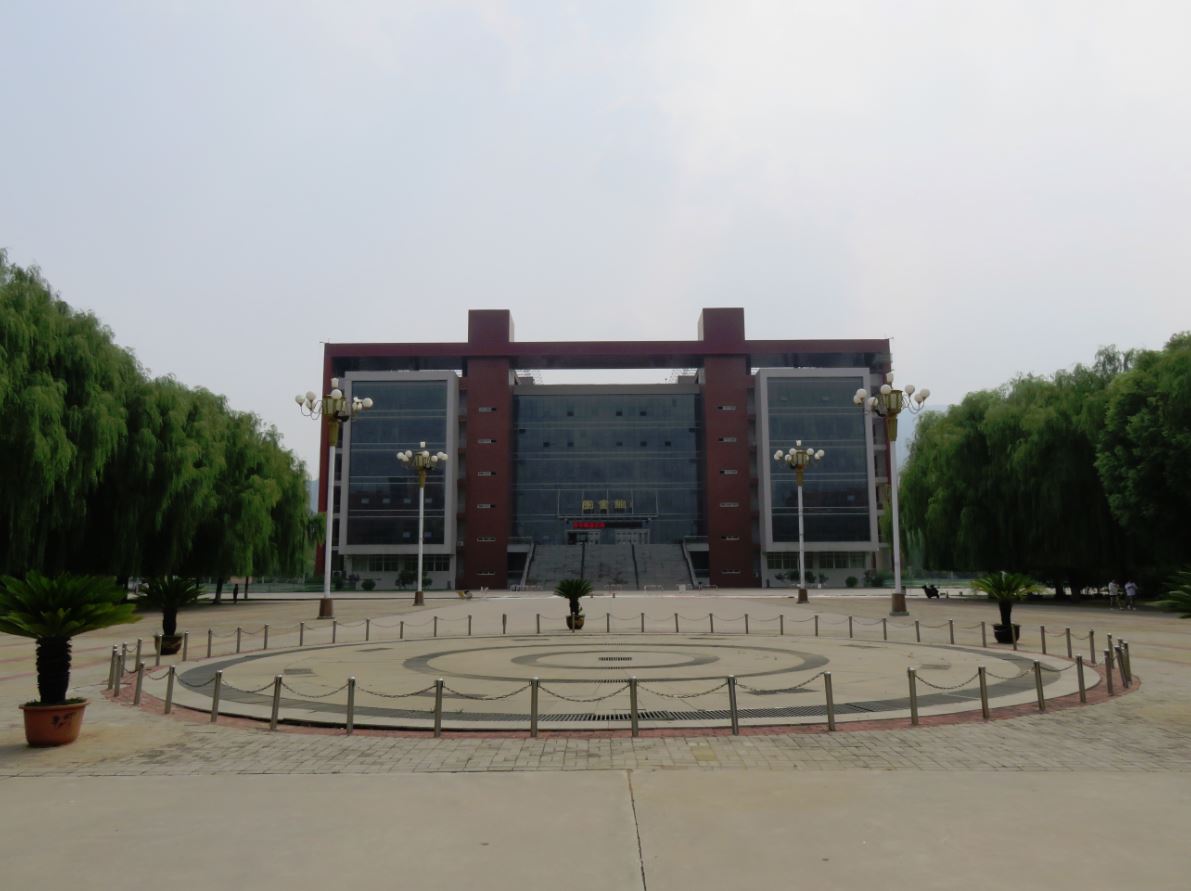
Inspiring: Henriëtte studied at a Chinese university for five months
When Henriëtte Hoffman was ten years old she was enthralled by The Last Emperor, a 1987 film about the twelfth and last emperor of the Manchu dynasty. It was an interest that eventually led to a five-month stay in Chengde in China for her Asian Studies research master’s programme. During her time in China, she was a committed and successful student who played a full part in life at a Chinese University. She now shares her experiences with us.
A lost culture
‘The Manchu are a people from north-east Asia, who conquered Beijing in 1644 and then ruled over China until 1911,’ says Henriëtte. ‘When the dynasty fell, the Manchu lost their power and were discriminated against. As a result, many of them no longer dared to identify as Manchu and they merged almost unnoticed into Chinese society. The differences between the Chinese and the Manchu were becoming increasingly difficult to see. Slowly, the Manchu language was forgotten. But the more relaxed policy of the 1980s meant that the Manchus have resurfaced again and they have been trying to recover the lost culture of their ancestors ever since.’
Manchu as a modern language
‘I went to China for six months as part of my research master’s to study this ancient culture in its contemporary form. I visited many Manchus and experienced their customs and traditions up close. I also learned to read, write, and speak modern Manchu. My lecturer in Leiden, Fresco Sam-sin, had told me about the Hebei Normal University for Nationalities in Chengde, about 300 kilometres north of Beijing. For a long time, within the academic world, Manchu was seen as a classical language that you can use to decipher ancient writings, but an old classmate of Fresco’s was teaching Manchu there as a contemporary language. There are very few Manchus who can speak modern Manchu - most just speak Chinese - but an increasing number of people want to learn it. In today’s classes, new words are introduced, such as “car” and “television” because these things obviously did not exist a hundred years ago. When I heard about the teaching programme, I immediately felt very enthusiastic about it.’
Treated like royalty
‘I was the first foreign student to ever attend the university, so my being there for six months was very special for them and I was treated like royalty. I was picked up from the station on my first day and shown straight to my room. It was an ensuite room, the best one they had. Everything was organised down to the last detail. The university was also very concerned that something might happen to me. Every time I wanted to leave the campus to play sports or something, I had to notify my teacher. My classmates also reacted very positively to me and were particularly inquisitive. After the first class, I had to stay there for at least another half hour to take selfies with my classmates,’ she laughs.
Trial and error
‘At first I found it difficult to participate in a Chinese classroom as a Dutch person, because no one spoke English or they spoke it very poorly. But I wanted to do everything in Chinese anyway, because that was the best way to really work on my own language skills. It is not important that you can’t speak the language flawlessly; what’s important is that you dare to speak it. Especially in situations where there is no other option and you just have to speak it. There’s no need to worry that people will laugh at you or that you will offend people: they quickly understand that it isn’t your native language and really appreciate that you are trying.’
Quality of education
‘Manchu language classes in Leiden and China are very different. In Leiden, the lessons were focused on history and the study of ancient texts, while the lessons in Chengde were about modern language use. It was interesting to see Manchu in this new way, as after three years of Manchu in Leiden I still didn’t know how to say “Hello, how are you?”. That kind of thing doesn’t appear in the ancient texts,’ Henriëtte explains. ‘In the Netherlands, we are taught using a textbook, vocabulary, grammar and dialogues in class. In China, everything revolves around repeat, repeat, repeat. Literally recite something until you know it by heart - even whole chunks of text from a book. I can imagine that's pretty tough for regular students.’
Future plans
‘Now that I'm back at Leiden University, I’m working hard on my thesis about all I saw and experienced in China. I have an enormous number of recordings of interviews with Manchus, as well as many pictures and notes. I have so much information that I hope I can also get a PhD out of it. I think that further research into this culture is important, precisely because very little research is being done at the moment. Even though there are now as many as ten million Manchus in China. I hope that I can continue doing my own research after my studies, but I would also like to work at a university, as a lecturer or professor for example. Or maybe something in government. Time will tell.’
Out of your comfort zone
‘I can definitely recommend studying abroad, and I’m very grateful to Leiden University - and especially my teacher Fresco Sam-sin - for this opportunity. In fact, I think studying abroad should be a requirement. It enables you to leave your comfort zone and see how things are in other parts of the world, even if it’s only a nearby country like Belgium. It’s good for your personal development too; you suddenly have to fend for yourself and you also get to know many new people. Personally, I notice that people who have been abroad are very open-minded; they’re quicker to try new things, and become more active. Yes, I think it’s a really valuable experience for anyone.’
Drawn to Henriëtte's story? Register now for one of our Masters courses in Asian Studies: Asian Studies (MA) or Asian Studies (Research MA).
Written by: Lieselotte van de Ven
Send an e-mail to the online editors





